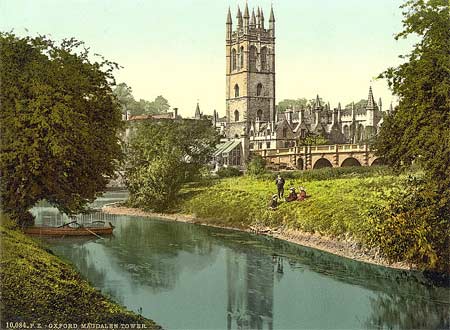I am devouring
Kristin Lavransdatter for
the second time, and am loving it this time around just as much as the
first. Maybe even more so because I understand the characters
better. A big thank you to Haley of
Carrots for Michaelmas for bringing
this book to my attention. While reading her list,
10 Books You Must Read to Your Daughter (Or How to Keep Your Daughter From Ending Up Like That Horrid Girl in Twilight), I happily
nodded as I went down the list because I too had read every single one,
except, wait... what's this one at the end?
Kristin Lavransdatter? Am I
even saying that right? How have I not heard of this? Apparently, my education had
been sorely neglected. I've spent many tense hours rectifying the
situation with my eyes as big as saucers, pen in hand in case I see
something that bears underlining.
I am also
listening to Jane Austen's
Sense & Sensibility audiobook (Nadia May is the reader), so I have
both of these excellent stories swimming around in my head, and I am
struck by the similarities of some of the characters. They are not
exactly the same, of course, and in some ways there's nothing in common.
The culture is very different, the time periods are ages
apart. Austen's Anglicanism is quietly in her world, while Undset's
Catholicism is at the forefront of everything. Even still, the
relationship of Willoughby, Marianne, and Brandon compared with the
relationship of Erlend, Kristin, and Simon bears comparison.
Many
have speculated on what it would have been like if Marianne and
Willoughby had married, if he had not been discovered and sent away by
Mrs Smith and had actually proposed to and married Marianne. We get a colorful picture of this alternate reality in the marriage of Erlend and Kristin.
Although, in my eyes, Kristin is the stronger of the two women, and it
would have been even harder for Marianne to bear the flaws of Willoughby
as they unfolded, maybe
impossible without the support of her mother and Elinor. The
personality flaws that are most obvious in Erlend are his ability to
fritter his money away and to act immorally when it comes to women. These
aspects cause Kristin great distress in their marriage. Austen shows us
that these characterize Willoughby as well. In fact, the way he leads
Miss Williams on, making her believe that he loved her, then impregnating
her, and finally abandoning her were the reasons he lost his inheritance
through Mrs Smith. When this happens he then abandons Marianne, seeking out the rich Miss Grey to marry, because, of course, he must
be rich and has already been living above his income. One funny resemblance between Willoughby and Erlend is their choice of
"pagan" names (as Kristin notices) for their horses. Erlend has several, and the horse
Willoughby wants to give to Marianne he names
Queen Mab.
We
could debate which of the men is a more complete ass, I would have to go
with Willoughby because we get a chance to see that Erlend has some
redeeming qualities. Perhaps if Willoughby was written into a
war-torn story we would have been able to witness his bravery and
manliness, but as it is we only see his seduction and abandonment of
Marianne. Although, one could argue that at least he was wooing her honorably while Erlend gave that up pretty quick.
Looking
at the other men mentioned, Simon and Brandon, their similarities are
most obvious in their interactions with the women they secretly love,
Kristin and Marianne, and in the trials they bear from Erlend and
Willoughby. Simon breaks his engagement to Kristin, at her request, so
that she can choose a man instead that he, Simon, doesn't respect, and
then has to witness their life together. Similarly, Brandon has to
suffer through scene after scene, for Willoughby and Marianne are always
making a scene when together, of their conspicuous flirting. As we
know, Brandon receives two-fold satisfaction, by seeing the dissolution of Marrianne's relationship
with Willoughby, and challenging Willoughby to a
duel for his mistreatment of Miss Williams, Brandon's ward.
Remembering,
though, that Marrianne is Brandon's "second attachment", and that his
first married another, his brother (Simon ends up being brother-in-law
to Erlend), we can possibly understand the frame of mind of these two
men in their second choices. Simon's love for Kristin appears more disinterested as he
sacrifices his honor and friendships to save Erlend for Kristin's sake.
Brandon was not given the chance to do this and I'm not sure he would,
or should.
We see in Kristin and Marianne young women
who are lead primarily by their emotions and strong wills. Both Kristin and Marianne are a young 16 years old when rescued by their dashing, handsome man on horseback.
Both are in love at first sight, and it takes very little time for
either lady to know that she wants to be with this man forever. What we
see so clearly in Kristin and Marianne we have trouble seeing in
ourselves. They are practically blind to what their self-will is doing
to the other people that they love. Simon and Brandon are spurned and
all objections of their family talked down. When Elinor tells Marianne that she has not been acting with propriety, she responds
,
“On the contrary, nothing can be a
stronger proof of it, Elinor; for if there had been any real impropriety
in what I did, I should have been sensible of it at the time, for we
always know when we are acting wrong, and with such a conviction I could
have had no pleasure.”
In Book One of
Kristin Lavransdatter, The Wreath, Kristin
"told herself that this separation from her home and family and Christianity was only temporary. But Erlend would have to lead her back by the hand." Both young ladies have their families to look to, but both also have particular advisers. Marianne has her sister, Elinor, and Kristin has Brother Edvin who tells her,
"You would rather hear about other people's frailties that about the deeds of decent people, which might serve as an example for you."
Thankfully the stories don't end there and we hear Marianne confess to Elinor,
I saw in my own behaviour since the beginning of our acquaintance with
him last autumn, nothing but a series of imprudence towards myself,
and want of kindness to others. I saw that my own feelings had
prepared my sufferings, and that my want of fortitude under them had
almost led me to the grave... Had I died, it would have
been self-destruction. I did not know my danger till
the danger was removed; but with such feelings as these
reflections gave me, I wonder at my recovery, -- wonder that the very
eagerness of my desire to live, to have time for atonement to my God,
and to you all, did not kill me at once... I cannot express my own abhorrence of myself.
Whenever I looked towards the past, I saw some duty neglected, or some
failing indulged. Everybody seemed injured by me.
In
The Wreath, Kristin has a similar realization when she tells Fru Aashild,
"I've done many things I thought I would never dare do because they were sins. But I didn't realize then that the consequence of sin is that you have to trample on other people." And much later in Book Three,
The Cross,
She had learned to understand it over the years. Her father's marvelous gentleness was not because he lacked a keen enough perception of the faults and wretchednesses of others; it came from his constant searching of his own heart before God...
As the books unfold we get to see their self-will being
replaced by faith. If you have not read these books, you are missing out!
Pactum serva.



